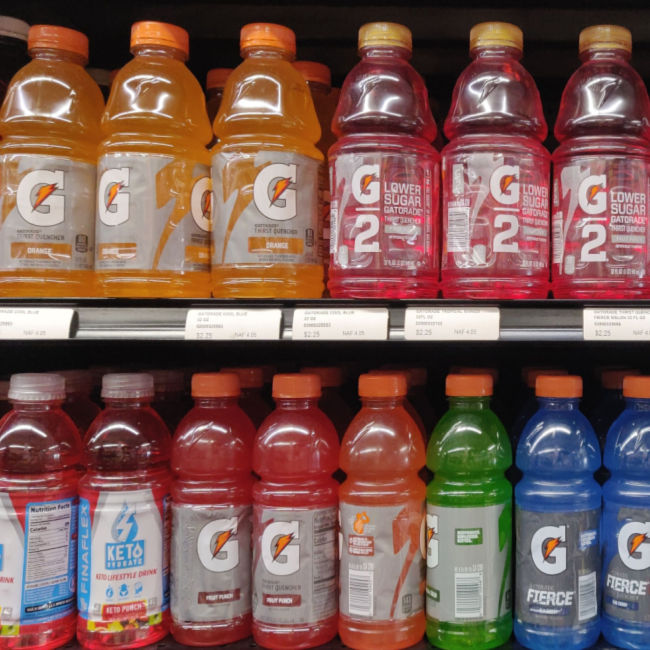
Sports drinks and weight gain
If you just completed an intense workout at the gym, you're feeling under the weather with the flu, or you woke up with a pounding headache after a night of heavy drinking, your first thought may be to reach for a Gatorade and rehydrate. Hydrating is always a good idea. Unfortunately, though, drinking sports drinks may not be the healthiest way to do that, especially if you're trying to shed a few pounds. That's because, like many products that may seem healthy on the surface, this beverage is likely loaded with sugar.
"Many sports drinks also contain added sugars, which can cause a rapid spike in blood sugar levels," Best warns. As she points out, "the added sugars in sports drinks are typically in the form of high-fructose corn syrup, glucose, or sucrose."
Best goes onto explain that sugars like these "are quickly absorbed into the bloodstream, causing a rapid rise in blood sugar levels." And those blood sugar spikes are never good for your health. They lead to crashes and cravings for more unhealthy sweet treats on a short-term basis, and over time, high blood sugar can also result in serious health issues, including diabetes, heart issues, and weight gain.
Richards warns us of the risk of insulin resistance, in particular, when it comes to drinking sugar-laden beverages: "Sugary drinks have been associated with an increased risk of insulin resistance, which can lead to weight gain and other health problems," she says.
Additionally, Richards reminds us, an excess intake of sugar "can contribute to the accumulation of visceral fat, which is the fat stored around the organs in the abdomen and has been linked to an increased risk of chronic diseases."
Regularly drinking sugary beverages like sports drinks could even take a toll on your metabolism. Healthline cites one 12-week controlled study which found that "overweight and obese people who consumed 25% of their calories as fructose-sweetened beverages on a weight-maintaining diet experienced a significant drop in metabolic rate."
All in all, it's best to limit your intake of sports drinks—and all high-sugar beverages, for that matter—to a minimum. If you are, indeed, completing an intense workout, it may not be the worst idea in the world to replenish your electrolytes, but choosing low-sugar options is ideal. "However, for those who are not exercising or consuming sports drinks in excess, the rapid rise in blood sugar can contribute to the development of insulin resistance and other negative health outcomes over time," Best concludes.
READ MORE: 3 Morning Mistakes That Doctors Say Make Inflammation And Weight Gain So Much Worse


